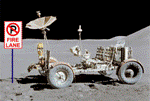Law, College of

Space Law Documents
Document Type
Article
Date of this Version
1985
Abstract
The opportunity for private sector investment in space technology has increased dramatically in very recent times. The commercialization of this technology places new stresses not only on the technical skills of nations, but also on their legal and political institutions. New technologies such as remote sensing, which are inherently global in their effect, suggest the need for laws and legal institutions which have a similarly global perspective. Yet, the commercialization of space technology remains a high risk, long-term endeavor. If the private sector is to have a meaningful role in the development of this technology, such laws and regulations must also be sensitive to the realities of the marketplace.
In the past, most space technologies ~re developed and operated by governments; therefore, limited attention was given to the means to regulate private-sector activities. In the United States, with the exception of satellite communications, the legal and regulatory framework for most commercial space activities is not yet in place.
This paper examines the effect that private-sector remote-sensing activities might have on the international community and on the future of international cooperation in space. It describes in detail "The Land Remote-Sensing Commercialization Act of 1984" recently passed by the U. S. Congress and signed by the President. The paper concludes that it is possible to develop domestic regulations that balance the economic needs of the private sector with the legal and political concerns of the international community.


Comments
Published in Proceedings of the Twenty-Seventh Colloquium on the Law of Outer Space, International Institute of Space Law of the International Astronautical Federation, Lausanne, Switzerland, October 7–13, 1984. Published by American Institute of Aeronautics and Astronautics New York, 1985.